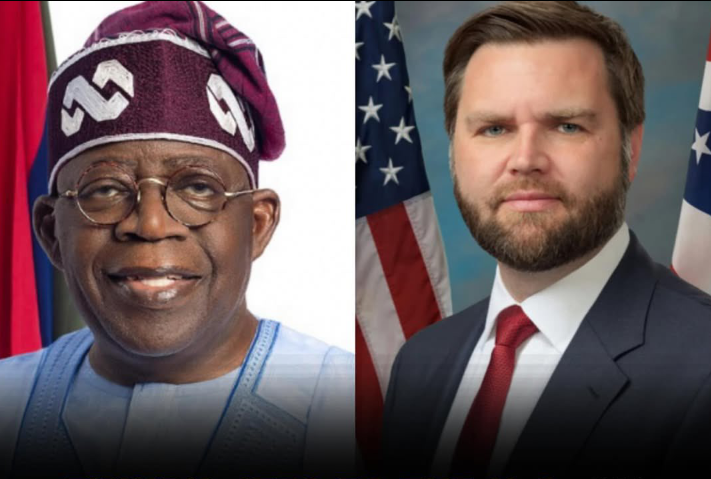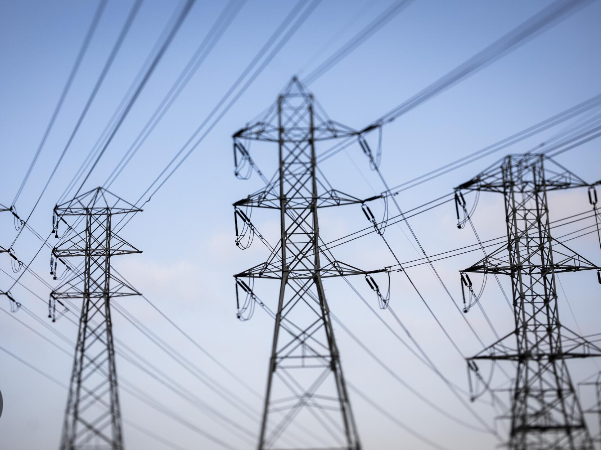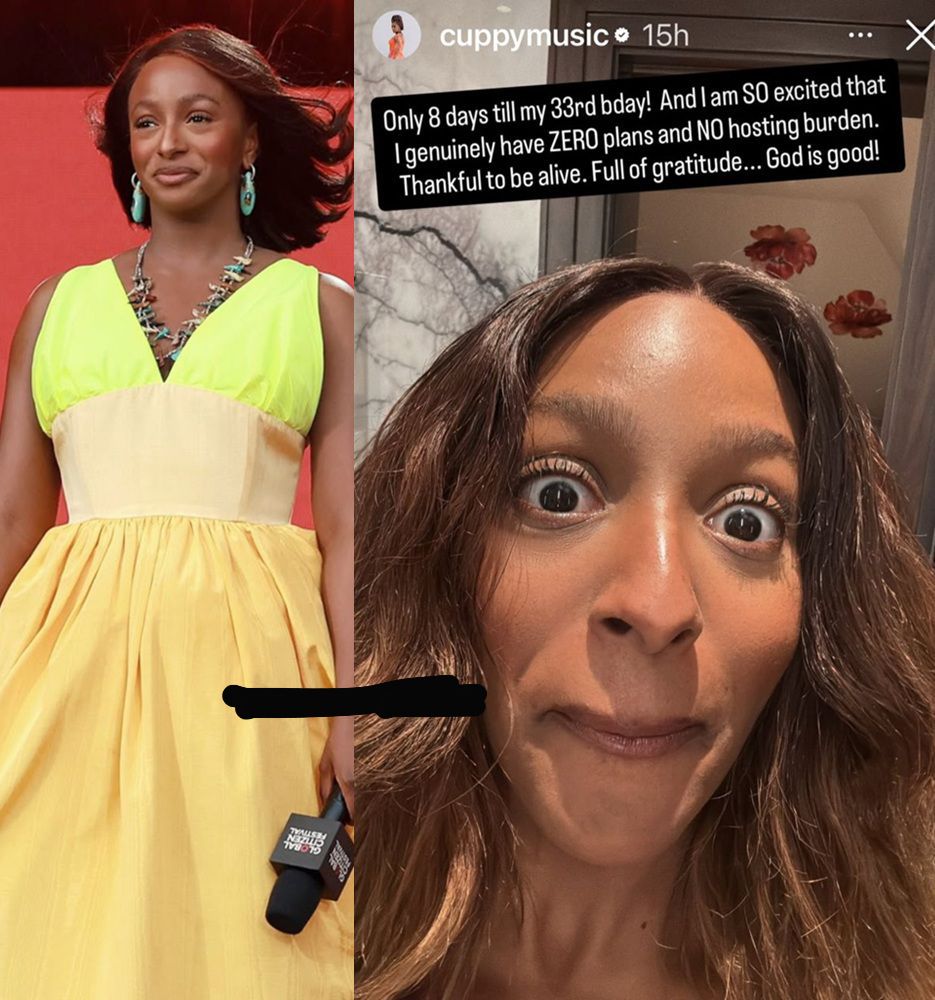
Tinubu Jets to U.S. to Meet Trump’s Vice President Amid Rising Diplomatic Tension Over Christian Killings Allegations

President Bola Ahmed Tinubu is set to travel to the United States on Tuesday for crucial diplomatic engagements with the administration of President Donald Trump. The visit comes amid growing tension following Trump’s recent comments alleging widespread killings of Christians in Nigeria and threatening to cut U.S. aid or deploy American troops if the situation persists.
According to presidency sources quoted by SaharaReporters, the visit will focus primarily on strengthening bilateral relations, enhancing counterterrorism cooperation, and reaffirming Nigeria’s position as a key strategic partner of the United States in Africa. The source added that Tinubu’s meeting will be held with the U.S. Vice President, James David (JD) Vance, who is representing President Trump, barring any last-minute changes to the schedule.
Daniel Bwala, Media Aide to President Tinubu, confirmed that the meeting will highlight ongoing security collaboration between both countries, noting that both leaders share a deep commitment to the global fight against terrorism and extremism. He stated that despite differences in perception about the religious undertones of violence in Nigeria, the Nigerian president is determined to maintain strong diplomatic and defense relations with the U.S.
Bwala further emphasized that the Trump administration had been instrumental in facilitating arms sales and intelligence support to Nigeria during its previous tenure, assistance that continues to play a vital role in the country’s counterinsurgency efforts. He noted that Tinubu’s government is keen on sustaining and expanding these partnerships to ensure long-term regional stability.
The visit comes at a sensitive time following President Trump’s strongly worded warning that his government could reconsider its aid and military cooperation with Nigeria if the alleged religious killings were not stopped. Trump, speaking during a faith-based roundtable in Washington, had accused the Nigerian government of failing to protect Christian communities, claiming that the situation amounted to “a silent genocide” in parts of the country.
His remarks immediately sparked widespread reaction in both nations. In Nigeria, religious groups, political analysts, and civil society organizations issued divided responses—some applauding Trump for raising awareness about religious violence, while others criticized his comments as inflammatory and misinformed.
The Nigerian presidency swiftly dismissed Trump’s claims, describing them as exaggerated and not reflective of the country’s true situation. In a statement, presidential spokesperson Ajuri Ngelale said Nigeria remains a secular nation where citizens are free to practice their faith without fear or discrimination. He maintained that while there are occasional clashes between ethnic and religious groups, the government is committed to addressing them through dialogue, development, and law enforcement.
President Tinubu himself, during a recent press conference in Abuja, downplayed Trump’s remarks, calling them a “mischaracterization of Nigeria’s complex but united social fabric.” He stressed that Nigeria’s constitution guarantees freedom of religion and equal rights for all citizens, regardless of faith, and that his administration would continue to defend those principles. “Our nation’s diversity is our strength,” Tinubu said. “We will not allow external narratives to divide us or distort our shared values.”
Nevertheless, diplomatic analysts say the timing of Tinubu’s visit is crucial. With the Trump administration signaling a tougher stance on African governments accused of human rights abuses or religious intolerance, Tinubu’s mission in Washington is expected to be both delicate and decisive. Experts suggest that the Nigerian president will need to reassure U.S. officials that his government remains firmly committed to religious freedom and to combating all forms of extremism—whether motivated by faith, politics, or ethnicity.
Sources in the Nigerian foreign ministry revealed that the agenda of the Tinubu-Vance meeting would also include discussions on military intelligence sharing, cybersecurity, economic investment, and the role of Nigeria in regional peacekeeping operations. Both sides are also expected to review ongoing defense contracts and explore new frameworks for training and equipping Nigerian security forces.
Vice President JD Vance, a former U.S. Senator from Ohio and a close ally of President Trump, is reportedly interested in expanding America’s strategic influence in West Africa through renewed cooperation with democratic governments. Vance has previously spoken about the need for stronger ties with “reliable African partners” to counter the growing presence of non-Western powers on the continent, particularly China and Russia.
For Tinubu, the U.S. trip represents an opportunity to repair strained diplomatic relations and secure continued American support in the face of mounting domestic and international pressure. Nigeria’s ongoing battles against insurgency, banditry, and separatist movements have stretched its security apparatus thin, and foreign assistance remains vital.
Observers also note that Tinubu’s engagement with the Trump administration could have far-reaching political implications. As Trump prepares for a possible re-election bid and seeks to reassert U.S. dominance in global affairs, Nigeria’s role as a regional powerbroker could make it a valuable ally. However, human rights concerns and allegations of religious persecution could complicate that partnership unless the Nigerian president successfully clarifies his government’s position.
In the lead-up to the trip, Nigerian-American groups have been lobbying both governments to ensure that discussions move beyond accusations and focus on actionable strategies to promote peace and development. Some diaspora organizations have urged President Tinubu to present a concrete plan addressing community-level violence and to invite U.S. observers to monitor progress on interfaith harmony initiatives.
Meanwhile, back home, political reactions remain mixed. Opposition leaders have accused the presidency of downplaying the seriousness of Trump’s warning, while ruling party supporters describe the visit as a timely diplomatic intervention that could strengthen Nigeria’s global standing.
Security experts also view the trip as an opportunity for Nigeria to renegotiate arms and defense deals, particularly as the country faces shortages in ammunition and intelligence capabilities. With U.S. technology and training historically playing a pivotal role in Nigeria’s counterterrorism operations, a renewed commitment from Washington could reinvigorate efforts against Boko Haram, ISWAP, and other militant groups operating across the Sahel.
As President Tinubu prepares to board his flight to Washington on Tuesday, expectations are high that his meeting with Vice President JD Vance will yield concrete results. Beyond the headlines and political rhetoric, the visit will test Nigeria’s diplomatic agility in balancing its sovereignty with the demands of international partnership.
For many Nigerians, the hope is that this engagement will not only ease diplomatic tensions but also translate into tangible benefits—greater security, stronger alliances, and renewed global confidence in Nigeria’s leadership. Whether the talks will succeed in calming the storm triggered by Trump’s remarks remains to be seen, but one thing is clear: the eyes of both nations will be watching closely as Tinubu steps into what could be one of the most defining foreign policy moments of his presidency.


